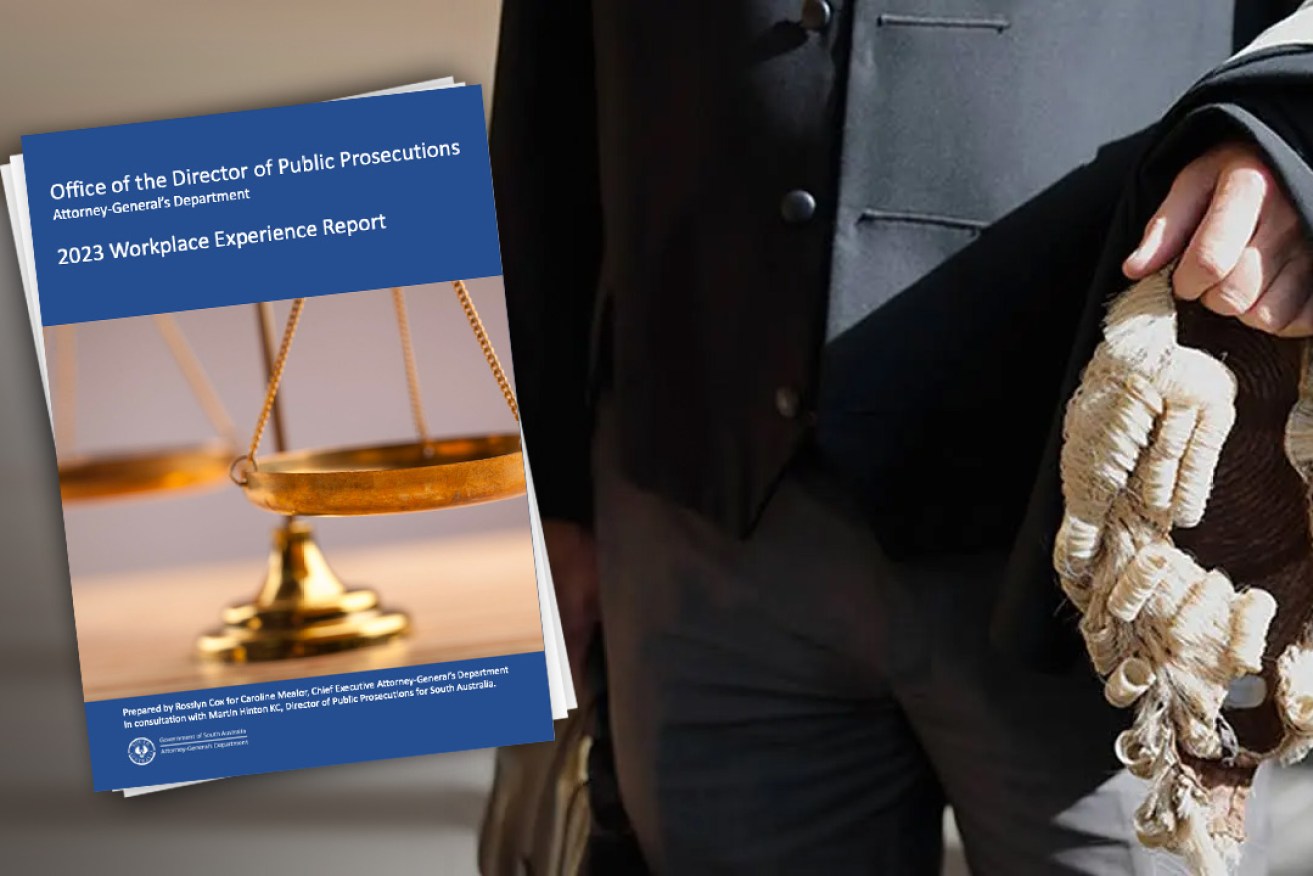Report finds DPP workplace experience ‘untenable’, calls for broader review
A State Government-commissioned report into the Office of the Director of Public Prosecutions has found that the workplace experience for most staff is “untenable” with lawyers working under unacceptable levels of pressure.


Photo: Tony Lewis/InDaily
Attorney-General Kyam Maher this afternoon tabled in parliament a 72-page report on the workplace culture within the Office of the Director of Public Prosecutions (ODPP).
Maher had previously vowed to keep the report under wraps amid calls from SA-Best MLC Frank Pangallo to release it and ongoing concerns from the public sector union about “fatigue, burnout and trauma” within the ODPP.
The workplace experience report was compiled by independent consultant Rosslyn Cox, who surveyed 197 current and former ODPP staff between March and June 2023. This included 144 current staff out of a possible 186.
“In summary, feedback received through the survey and individual staff meetings, suggest that the current workplace experience for most staff in the ODPP is untenable,” the report found.
“Respondents highlighted what many describe as unacceptable, unreasonable and unsustainable levels of pressure and stress working at the ODPP and the potential consequences for work standards, professional integrity, wellbeing and work life balance.”
Cox found the main contributor to the poor workplace experience “was and continues to be the unrelenting workload driven by volume, increasing complexity, often distressing and difficult content, and the sense of responsibility that comes with wanting to do what’s right for victims, witnesses and their families”.
“Importantly, much of the workload pressure appears to be a consequence of factors beyond the control of the ODPP, who sit within the criminal justice system between SAPOL and the Courts, and who are obliged to prosecute indictable or summary offence against the State, irrespective of current resources,” the report states.
“Workload pressure and stress have been compounded recently with the departure of so many experienced senior staff, the additional work that comes with needing to support so many new, less experienced staff… and an expectation from the Director that people do more with less in order to meet their obligations as officers of the court.”
The ODPP’s attrition rate – a measure of how quickly staff leave an organisation – has increased from 16 per cent to 36 per cent from 2016 to 2022, the report highlights.
It also notes the departure of more than a dozen senior and executive level staff from the ODPP since 2018.
“The historically higher rates of attrition over this time were coupled with a significant drop in the number of applications received for advertised roles within the Office over the same time,” the report states.
“Previously, it was usual to receive up to 140 applications for a junior lawyer pool, but by 2023 that figure had dropped to less than 40.”
The Crown Solicitor’s Office also had an attrition rate of 35 per cent in 2022, while the rate in the overall Attorney-General’s Department has increased from 10 per cent to 18 per cent from 2016 to 2022.
Cox’s report makes 20 recommendations, including an “immediate” recommendation asking the Director of Public Prosecutions, Martin Hinton KC, to reduce and manage “external workload pressures and timeframes” over the next six months.
“(This) may include working with the Courts to manage the number of listings and briefing out work where possible,” the report states.
“Should the Director not be able to reduce workload demands through negotiation, (it is recommended) that the Director work with the Department to prepare a budget submission for the consideration of the Attorney-General to increase resources in the office.”
Cox’s report further recommends that the Commissioner for Public Sector Employment be “alerted to the need for a sector wide review of pay and conditions for legal officers across the public sector, including the Crown Solicitors Office, the Legal Services Commission and any other parties who are likely to be impacted by any changes”.
“The review should focus on parity of pay and conditions within the public sector across classification streams… with reference to the private sector pay and conditions,” the report states.
The Attorney-General told parliament today the government was committed to implementing the recommendations of the report.
Maher also said the government would be re-establishing a “criminal justice ministerial taskforce” to examine issues within the report and “explore options to reduce the amount of workload pressures impacting the criminal justice sector”.
“It was never intended the report would be made public,” Maher said.
“But given the public interest in the work undertaken by Ms Cox, the director and the chief executive of the department have agreed that the report be tabled.
“This has been an important piece of work which has recognised the challenges of working in the Office of the Director of Public Prosecutions, including relentless workload largely impacted by external pressures beyond the director’s control and increasingly complex work.
“Despite these challenges, Ms Cox did not find that the standard of work produced by officers fallen: to the contrary, staff continue to maintain their commitment to assisting the Office of Director of Public Prosecutions in fulfilling the director’s functions.”
In an interview a short time ago, Hinton rejected that the review meant his position as DPP was untenable.
“Is my position tenable? At the moment, focusing on the recommendations as being indicative of the issue, because they solve the issue, yes, I do think it remains tenable,” Hinton said.
“There’s nothing in the report or from my conversations with the report writer that suggests that the position in which we find ourselves is such that I should cease to be DPP.
“And I’ve asked that question upfront, straight away: If you tell me I’m the problem, if I’m the problem and not part of the cure, then I’ll walk.
“But in the report, nothing in it says that I’m not part of the cure.”




